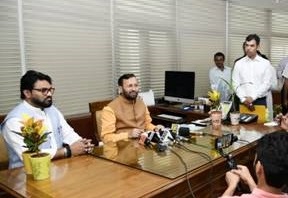The role of artificial intelligence (AI) is evolving, especially in industrial organizations such as oil and gas, where data acts as a critical enabler to provide a competitive advantage. Industrial organizations operating in the fields of mining, oil, and gas; and marine, are going through a radical transformation and seeking innovative ways to optimize performance with minimized risk.
The volatile and ever-competitive nature of the industrial companies demands them to identify new and innovative sustainable models to stay profitable, grow and unlock efficiencies. The situation has become more challenging in the wake of the coronavirus pandemic. According to a Capgemini research, over 50% of the European manufacturers, 30% in Japan, 28% in the USA, and 25% in South Korea implement AI solutions.
Enterprises operating in Oil and Gas, Marine, and Oil use traditional machinery which may not be easily replaceable because of the huge costs associated with it. Hence, they need advanced technologies to optimize their operations. They are the ones where data could act as a critical enabler to provide them a competitive advantage if managed with the right combination and tools. (See: How will AI impact enterprise ecosystems in 2021?)
Intelligent machines, optimized production
An estimate from the Robotic Industry Association says the cost of one minute of production-line downtime for a company like General Motors could be around $20,000. That’s enormous!
AI for industrial organizations has become essential for driving operational efficiencies of their assets and processes. With AI and ML advancements, industrial enterprises can make their machines smarter, predict maintenance schedules, minimize downtime and let the devices identify problems sooner, and even rectify them automatically in some instances.
Industrial organizations have an enormous amount of data from their different manufacturing processes. However, the lack of talent and necessary tools prevent them from leveraging the same for deriving meaningful insights.
By monitoring and analyzing data carefully, industrial organizations can anticipate the gaps in the output and receive automated warnings to stop the machine when there is an issue. This helps save cost and time, assisting companies to better their efficiencies. For instance, by leveraging AI-based predictive tools in oil and gas, companies can identify the machine and pipeline deterioration signs and raise alarms to pipeline operators. The use of voice-enabled AI chatbots can also help in oil and gas and mining areas, whereby operators can engage in meaningful automated conversations around the processes, focusing solely on production-related activities.
The supply chain is another crucial process gaining substantial benefits from the AI and ML-driven applications, ensuring industrial companies create equipment buffers as per the real-time market demand. Besides, AI capabilities are also being used extensively for manufacturing and industrial companies to reduce energy consumption, minimize assembly lead times, and increase asset utilization.
Key challenges
The challenge, however, for the industrial organization is a widening gap in the knowledge and competencies of various enterprises’ internal IT departments. The shortage of internal talent to deploy and scale AI in production and integrate with existing standardized solutions.
The successful predictive maintenance strategy is heavily dependent upon the data to integrate necessary engineering in the machinery. Data can not bring efficient results in case they are working in seclusion.
The industry needs strong foundations and collaboration models to create new enterprise-specific applications to analyze data and automate critical processes. Another major challenge that many enterprises need to deal with is managing the people and cultural change. It becomes necessary for organizations implementing AI solutions to conduct essential workshops and focus group discussions on understanding the pain points and queries of their employees.
As we move forward in 2021, AI for industrial organizations will see greater demand as they focus on reducing time to impact and balance their supply chains according to the real-time demand. The industry is likely to witness a steep rise of several integrated solutions from emerging solutions providers and specialized companies to help Industrial companies drive further innovations.







0 Comments